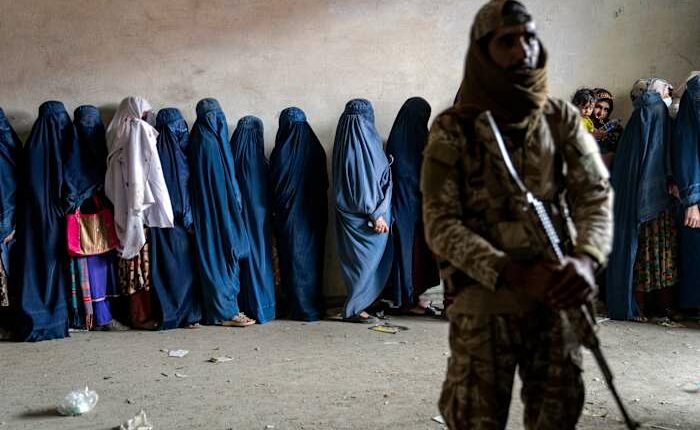Share this @internewscast.com

ISLAMABAD – On Monday, the United Nations voiced its concern over the Taliban’s detention of Afghan women and girls for allegedly not adhering to the dress code set by the authorities.
In May 2022, the Taliban government issued a decree stipulating that women should only leave their eyes visible and suggested that they wear a full-body burqa. Since the Taliban regained power in 2021, they have intensified efforts to regulate women’s attire and conduct in public, particularly through laws that prohibit them from showing their faces outside their homes.
The U.N. mission in Afghanistan expressed alarm about the detainment of “numerous” women and girls in Kabul during the period from July 16 to 19, accused by authorities of failing to abide by the requirement to wear the hijab, an Islamic headscarf.
“These incidents serve to further isolate women and girls, contribute to a climate of fear, and erode public trust,” the mission added, without details including the number of arrests or the ages and where they have been held.
The U.N. mission urged the Taliban government to “ rescind policies and practices ” that restrict women and girls’ human rights and fundamental freedoms, particularly the ban on education beyond sixth grade.
A Taliban representative was not immediately available for comment.
In January 2024, the country’s Vice and Virtue Ministry said it had arrested women in the Afghan capital for wearing “bad hijab.” A ministry spokesman, Abdul Ghafar Farooq, did not say how many women were arrested or what constituted bad hijab.
The U.N. mission said at the time it was looking into claims of ill treatment of the women and extortion in exchange for their release.
The Taliban took control of Afghanistan in August 2021 following the withdrawal of U.S. and NATO forces. Since then, the Taliban administration has sought international recognition while enforcing its interpretation of Islamic law. In July, Russia became the only country to grant formal recognition.
Copyright 2025 The Associated Press. All rights reserved. This material may not be published, broadcast, rewritten or redistributed without permission.











